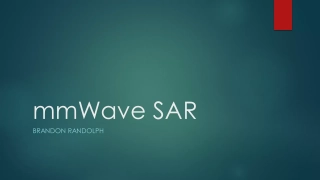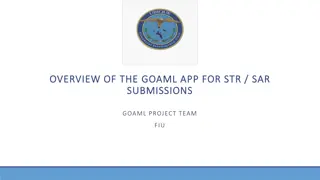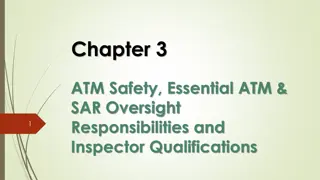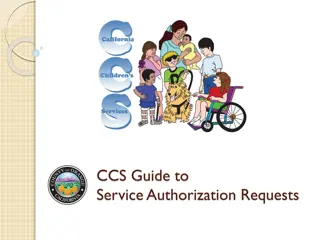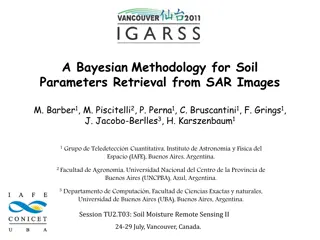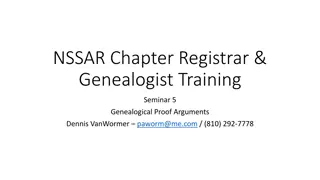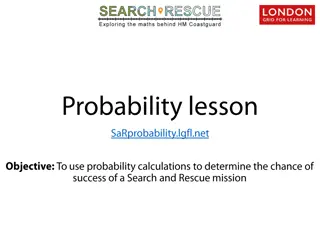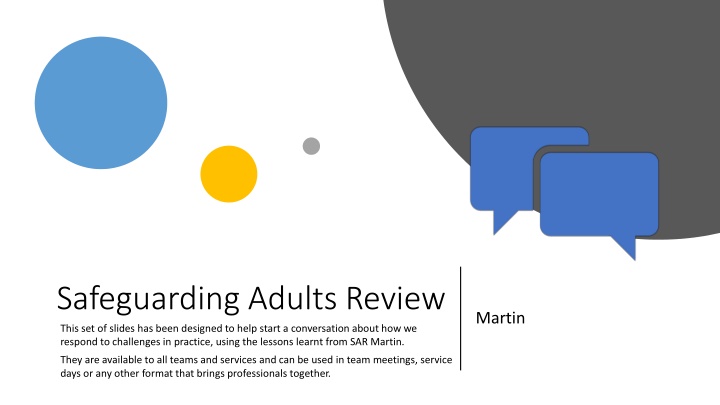
Safeguarding Adults - Lessons from SAR Martin
Explore the case study of Martin, a 51-year-old gay man who tragically passed away, to start a conversation on effective responses to challenges in safeguarding adults. Reflect on assumptions, difficulties, and biases in such situations, emphasizing the importance of adult safeguarding procedures.
Download Presentation

Please find below an Image/Link to download the presentation.
The content on the website is provided AS IS for your information and personal use only. It may not be sold, licensed, or shared on other websites without obtaining consent from the author. If you encounter any issues during the download, it is possible that the publisher has removed the file from their server.
You are allowed to download the files provided on this website for personal or commercial use, subject to the condition that they are used lawfully. All files are the property of their respective owners.
The content on the website is provided AS IS for your information and personal use only. It may not be sold, licensed, or shared on other websites without obtaining consent from the author.
E N D
Presentation Transcript
Safeguarding Adults Review This set of slides has been designed to help start a conversation about how we respond to challenges in practice, using the lessons learnt from SAR Martin. Martin They are available to all teams and services and can be used in team meetings, service days or any other format that brings professionals together.
Martin was a 51 year old gay man who lived alone in a Housing Association property. He had worked as a chef in various settings including a care home, and had volunteered for London Gay Switchboard. Martin was close to his sister and mother, and enjoyed time with his nephews. He got on well with his neighbours and was involved in the life of the block of flats in which he lived. Who was Martin? His connection with family and friends was however dependant on how he was coping with his alcohol addiction something he had struggled with for many years. Martin has previously accessed Substance Misuse Services but was not open to any team and had not seen his GP for some time.
Martins neighbours raised the alarm when they noticed the smell and had not seen him for some time. On the 12th March he was visited by Metropolitan Police, London Ambulance Service (LAS) and a General Practitioner (GP) All these agencies felt concerned about him and tried to convince him to go to hospital but he refused. He was found lying on a soiled mattress, signs of blood/vomit around his mouth and in soiled clothing. There were no signs of food in the house other than bottles of Yazoo (milkshake drink). All agencies felt he need hospitalisation however he refused and was assessed to have capacity to make this decision. He said he would arrange food for himself and visit the GP surgery in a few days. What happened to Martin? Martin s was found dead at his address on the 16th March 2018.
Reflection Points: Reflection Points: What are your immediate assumptions about what went wrong? Did you have any initial assumptions about Martin that then changed? What might you find difficult in responding to this type of situation? Watch out for hindsight bias
Adult Safeguarding referrals were made by the police and ambulance trust to Lambeth Adult Social Care The GP made telephone contact with Adult Social Care (ASC) on the same day that he saw Martin and it was agreed that: The Adult Safeguarding response at the time since he has no immediate mental health/mental capacity problems, that he has no learning disability, that he has no mobility issues, and that he is choosing not to accept help from the healthcare teams, Lambeth ASC will view this as an adult safeguarding issue and will visit to assess his situation. (The duty worker) pointed out that this may or may not be this week. The patient claimed that he would go out to get food later today or tomorrow and is drinking water.
Talking Points: How do you respond when someone is refusing the essential support they need? Responding Responding when when someone is someone is assessed as assessed as having having capacity capacity When can you override someone s consent? What does vital interests mean?
Talking Points: How do you respond when someone is refusing the essential support they need? SAR Learning point: Whether a person is capacitated or not regarding a specific decision should not be the end of the assessment of their rationale, beliefs and physical or emotional state and the impact that these have on their decision making. This is particularly important when a person s vital interests are at stake. Responding Responding when when someone is someone is assessed as assessed as having having capacity capacity When can you override someone s consent? What does vital interests mean?
Talking Points: What does executive function mean? Considering Considering impact of impact of executive executive function on function on Capacity Capacity How could Martin s executive function have been assessed? Where in the MCA assessment should you record someone s executive capacity ?
Talking Points: What does executive function mean? SAR Learning point: Considering Considering impact of impact of executive executive function on function on Capacity Capacity A mental capacity assessment may need to explore more than what a person says they can do, it must also explore whether the person can put these verbal claims into some sort of meaningful action, and if they cannot whether they are able to use and weigh this information to make decisions about other options. How could Martin s executive function have been assessed? Where in the MCA assessment should you record someone s executive capacity ?
Access to more talking points from SARs and 7- minute briefings Thank you! Thank you! Complex needs pathway (expected January 2021) For more For more information: information: LSAB Multi-agency self-neglect guidance LSAB Multi-agency self-neglect guidance Self-Neglect at a glance; SCIE Self-Neglect at a glance; SCIE LSAB website To read the full SAR report, visit the LSAB website.
We would like to hear from you about how useful this learning tool was, so that we can continue to make improvements. To share facilitator feedback, click here. Feedback

